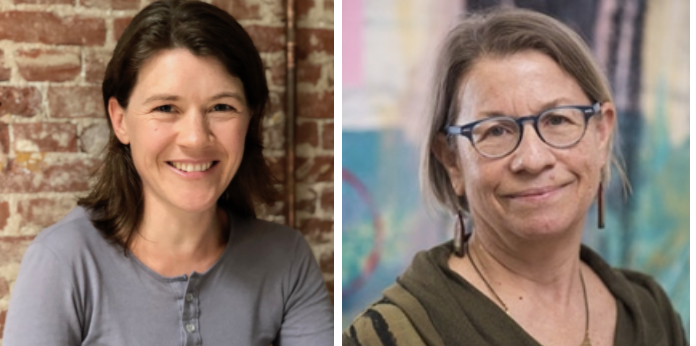By Joan Gross and Emily Yates-Doerr
The COVID-19 pandemic has laid bare the racialized inequality that permeates Oregon’s food system.
The conditions of slavery and genocide upon which the U.S. was founded have been neither reconciled nor repaired, leaving our state with a food system that increases vulnerability to the spread of viruses like COVID-19.
As professors in Oregon State University’s Food in Culture and Social Justice program we have spent decades studying how social inequities are reproduced through every stage of the food system. The pandemic is exposing the brutal effects of these inequities. Now, more than ever, we must seek treatments that emphasize systemic change and social justice.
Let’s begin with the production of food on Oregon farms, on lands stolen from Native Americans. The vast majority of farmland in our country is owned by white men, and the people who plant, care for and harvest the food are mostly people of color, many of whom were forced to leave their own land in other countries due to political situations beyond their control. Working conditions in the fields often lack sufficient handwashing stations and underpaid migrant workers are housed in substandard structures where social distancing is impossible.
On some farms in the U.S., every single farmworker has tested positive for COVID-19 and Oregon farms could easily be next.
Moving on to food processing, we find that many of the hotspots of COVID-19 outbreaks occur in factories where food is processed. With people working shoulder to shoulder to increase efficiency, the virus can spread quickly.
The next stage of food processing occurs in restaurants or institutional cafeterias, where cooks, servers and dishwashers prepare, deliver and clean up after meals for the enjoyment of others. The work is precarious and usually without health care benefits, so workers are compelled to come to work, even when sick. Closing these businesses may protect potential customers, but it puts huge numbers of already vulnerable people out of work. Additionally, farmers who produce for that supply chain have no market and are left to destroy edible food — all while people go hungry.
This brings us to the final phase of the food system, when food enters people’s mouths.
Food workers are twice as likely to be food insecure as others, but during the pandemic, they find themselves in good company given the high rates of current unemployment. U.S. citizens can apply for SNAP benefits, but many food workers are not citizens. They are not banned from accessing food at pantries and free meal sites, but many fear that if they do make use of them they will be arrested and separated from their families.
Today, the fact that COVID-19 is widespread in penitentiaries and deportation stations adds to their fear.
Oregon relies on the cheap labor of Latin American migrant workers to grow and process food, and these farms and factories have become centers of infection in our state. Only 13 percent of the state identifies as Hispanic, but 36.6 percent of identified COVID-19 infections have occurred within this population.
In light of the recent outbreak at Pacific Seafood, where more than 181 employees tested positive for the virus, news headlines reported that “language barriers” were delaying the ability to track and trace people with COVID-19, with many of the impacted workers speaking Latin American Indigenous languages.
These language barriers must be understood within broader violations of human rights exemplified by an abusive immigration system that too quickly imprisons and deports — even when people have the legal right to stay. Testing and tracing will not be effective unless there are labor protections in place that make it safe for all people who worry they are sick to come forward.
It’s tragic, not to mention dangerous, that agricultural workers and food processors are considered essential, and yet they are unprotected.
As the world clamors for COVID-19 magic bullets — vaccines, antibodies, llamas, medications, face shields — the one thing that will make a significant and lasting difference is a large injection of social justice.
We must work to increase land sovereignty among marginalized communities, support universal health care and guaranteed wages, and put an end to racist police brutality and extortionist farmworker immigration policies. A vaccine for COVID-19 may never eliminate coronavirus, but these structural changes are within our reach. They are fundamental to creating an equitable food system that feeds us all.
Joan Gross, Ph.D., and Emily Yates-Doerr, Ph.D., are professors in Oregon State University’s Food in Culture and Social Justice program, which educates students about the food system and the complexities of foodways around the world. The program encourages students to actively strive to create a more equitable and environmentally sustainable food system, and many of our graduates are currently involved in that work.
